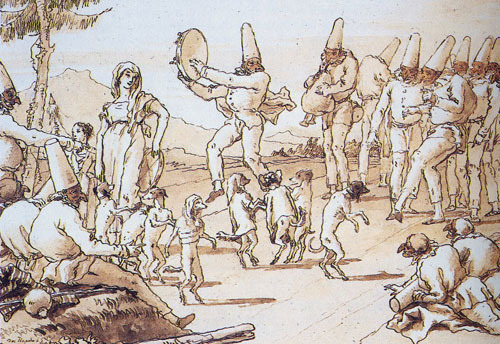On "daring to be foolish," once again
Here's a passage I love: it's Allen Ginsberg talking about the writing of poetry (although it applies to any creative endeavor), expressing some of the same things that I was trying to get at in my earlier post, Dare to be Foolish:
"The parts [of the work] that embarrass you the most," says Ginberg, "are usually the most interesting poetically, are usually the most naked of all, the rawest, the goofiest, the strangest and most eccentric and, at the same time, most representative, most universal...That was something I learned from Kerouac, which was that spontaneous writing can be embarrassing....The cure for that is to write things down which you will not publish and you won't show people. To write secretly...so you can actually be free to say anything you want.
"It means abandoning being a poet, abandoning your careerism, abandoning even the idea of writing any poetry, really abandoning, giving up as hopeless--abandoning the possibility of really expressing yourself to the nations of the world. Abandoning the idea of being a prophet with honor and dignity, and abandoning the glory of poetry and just settling down in the much of your own mind....You really have to make a resolution just to write for yourself...in the sense of not writing to impress yourself, but just writing what your self is saying."
Now this is, in a sense, the opposite advice from the Henry James quote I posted earlier this week, which seems to suggest that artists consider whether the work they're doing is worth doing before they embark upon it. Ginsberg, by contrast, advises working from the gut, the core, the raw and messy interior, without worrying too much about whether the world will value (or even needs to see) what it is we create. I tend to think that both pieces of advice are valid, and necessary to the creative process. The key, I suppose, is knowing which one to apply at what time, and for which project, and for which stage of a particular project.
When I'm writing, for example, I find that first drafts are my time for Ginsbergian flow, letting things emerge from the depth without censor (a freedom I achieve only by adhering to a strict rule of keeping my early drafts private). It's only in later drafts -- when I'm approaching my work more as an editor than an author -- that I can evaluate the text in the Jamesian way. And I've learned, over the years, not to let the Jamesian editor/critic into process too early, for then I am liable to be so self-conscious that I end up writing painfully s-l-o-w-ly...or writing nothing at all. I long ago discovered that I need to allow that first draft to be just as red, wrinkled, and bawling as a new born babe--a creature of beauty only to me, its mother--for that seems to be how my stories are born. The first draft is always and only for myself. It's the last draft that's for the readers.
Terri Windling's Blog
- Terri Windling's profile
- 710 followers




